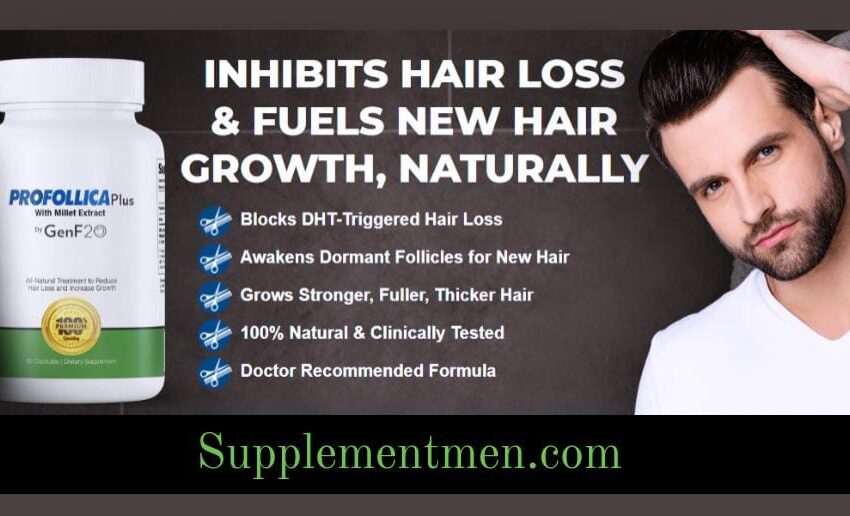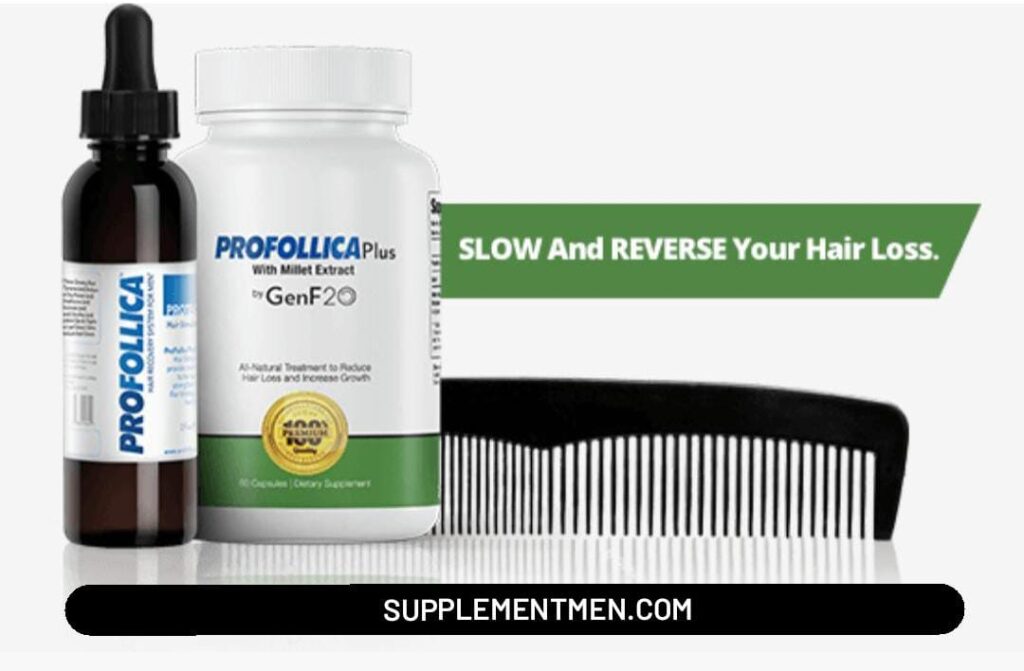I. Introduction
- Explanation of the importance of healthy hair
- Introduction to the topic of hair loss supplements
II. Understanding Hair Loss
- Causes and factors contributing to hair loss
- Impact of genetics, hormones, and lifestyle choices
III. The Role of Hair Loss Supplements
- Overview of hair loss supplements as a potential solution
- Benefits and limitations of using supplements for hair growth
IV. Key Ingredients in Hair Loss Supplements
- Highlighting common ingredients found in supplements
- Discussing the role of biotin, vitamins, minerals, and herbs
V. Scientific Evidence and Effectiveness
- Examination of scientific studies supporting hair loss supplements
- Analysis of the efficacy of specific ingredients
VI. Choosing the Right Hair Loss Supplement
- Factors to consider when selecting a supplement
- Understanding dosage, quality, and reliability of products
VII. Incorporating Supplements into a Hair Care Routine
- Tips for integrating supplements into a comprehensive hair care regimen
- The importance of a balanced diet, hydration, and proper hair care practices
VIII. Potential Side Effects and Precautions
- Discussion of possible side effects associated with supplements
- Advising on consulting a healthcare professional before starting any new regimen
IX. Other Strategies for Promoting Hair Growth
- Complementary approaches to complement the use of supplements
- Lifestyle changes, stress management, and professional treatments
Nourish and Regrow: A Guide to Effective Hair Loss Supplements

Overview
Healthy and lustrous hair is often associated with vitality and confidence. However, many individuals experience hair loss, which can be distressing. As a result, people seek out various solutions to address the issue, including hair loss supplement. In this comprehensive guide, we will explore the realm of hair loss supplements, examining their effectiveness, key ingredients, scientific evidence, and considerations for choosing the right supplement.
-
Understanding Hair Loss
Hair loss can be attributed to a range of factors, including genetics, hormonal imbalances, nutritional deficiencies, lifestyle choices, and certain medical conditions. It is essential to identify the root cause of hair loss to determine the most appropriate course of action. While hair loss supplements can be beneficial, it is crucial to understand the underlying causes before incorporating them into a hair care routine.
2) The Role of Hair Loss Supplement
Hair loss supplement encompass a wide array of products, typically containing a blend of vitamins, minerals, herbs, and other natural compounds. These supplements claim to nourish hair follicles, stimulate hair growth, strengthen existing hair, and improve overall hair health. While they are not a magic solution, they can be an effective addition to a comprehensive hair care regimen.
3) Key Ingredients in Hair Loss Supplements
Numerous key ingredients are commonly found in hair loss supplements.
Biotin, also known as vitamin B7, plays a vital role in the production of keratin, the protein responsible for hair structure. Other ingredients like vitamin E improve blood circulation to the scalp, while zinc supports hair follicle function. Saw palmetto, derived from the Serenoa repens plant, may help inhibit the conversion of testosterone to dihydrotestosterone (DHT), a hormone linked to hair loss. Marine collagen, rich in amino acids and antioxidants, is believed to promote hair growth and enhance hair quality.
4) Scientific Evidence and Effectiveness
While anecdotal evidence and testimonials are abundant, scientific evidence supporting the effectiveness of hair loss supplement is limited. However, certain ingredients have shown promise in research studies. Biotin supplementation has demonstrated positive effects in individuals with biotin deficiency. Saw palmetto has also shown efficacy in reducing hair loss associated with androgenetic alopecia. It is important to note that individual results may vary, and it is advisable to consult a healthcare professional.
5) Choosing the Right Hair Loss Supplement
When selecting a hair loss supplement, several factors should be considered. It is important to assess the quality, reliability, and reputation of the product. Reading customer reviews and seeking professional advice can aid in decision-making. Additionally, understanding the appropriate dosage and potential interactions with other medications or health conditions is essential.
6) Incorporating Supplements into a Hair Care Routine
While hair loss supplement can be beneficial, they work best when integrated into a holistic hair care routine. A balanced diet rich in vitamins, minerals, and proteins is crucial for healthy hair growth. Hydration, proper scalp care, and reducing stress levels also contribute to overall hair health. It is advisable to adopt a comprehensive approach that combines supplements with other healthy hair practices.
7) Potential Side Effects and Precautions
As with any supplement, there is a possibility of side effects. It is important to be aware of potential adverse reactions and to follow the recommended dosage. Consulting a healthcare professional before starting any new supplement regimen is advised, especially for individuals with underlying health conditions or those taking medications that may interact with the supplements.
8) Other Strategies for Promoting Hair Growth
In addition to hair loss supplements, there are various strategies that can support hair growth and overall hair health. Lifestyle changes, such as managing stress, getting regular exercise, and avoiding excessive heat or chemical treatments, can all contribute to maintaining healthy hair. Professional treatments, such as laser therapy or microneedling, may also be considered in consultation with a dermatologist or hair specialist.
Conclusion
Hair loss supplements can be a valuable addition to a comprehensive approach in addressing hair loss and promoting hair growth. While scientific evidence supporting their effectiveness is limited, certain ingredients have shown promise. Choosing the right supplement, integrating it into a well-rounded hair care routine, and considering other strategies for hair growth can provide a more holistic approach to nourishing and regrowing hair.
Frequently Asked Questions:
- Are hair loss supplements suitable for everyone?
- Hair loss supplements may not be suitable for everyone. It is advisable to consult a healthcare professional before starting any new supplement regimen, especially if you have underlying health conditions or are taking medications.
- How long does it take to see results from hair loss supplements?
- Results can vary depending on the individual and the underlying cause of hair loss. It may take several months of consistent use to notice significant changes in hair growth and quality.
- Can hair loss supplements completely reverse baldness?
- Hair loss supplements cannot completely reverse baldness, particularly in cases of advanced hair loss. However, they may help slow down the progression of hair loss and improve overall hair health.
- Are there any natural alternatives to hair loss supplements?
- Yes, there are natural alternatives to hair loss supplements, including a balanced diet, scalp massages, essential oils, and herbal remedies. However, it is important to note that their effectiveness may vary.
- Are there any specific dietary recommendations for promoting hair growth?
- A diet rich in vitamins, minerals, and proteins is beneficial for promoting hair growth. Foods like eggs, salmon, spinach, nuts, and seeds can provide essential nutrients for healthy hair.





